
Maria Olson
I am Professor in Educational Work, Dalarna University, and Associate professor in Education at the Centre for Teaching and Learning in the Humanties, Stockholm University, Sweden, and at the School of Health and Learning, University of Skövde. I received my Doctor's degree in Pedagogic Practices with a minor in Political science at Linköping University, Sweden.
My major fields are educational theory and educational philosophy. My research interest also entails empirical and policy-oriented approaches. My areas of specialisation include the way in which education, democracy and citizenship relate to each other.
I also have a special interest in existential approaches to education and citizenship within different theoretical and methodological framings, mainly poststructural ones.
Supervisors: Gunnel Colnerud and Tomas Englund
Phone: + 46 8 12 07 66 61
Address: Stockholm University
Centre for Teaching and Learning in the Humanities
S-106 91 Stockholm
Sweden
Correspondence: maria.olson@cehum.su.se
and
School of Health and Learning
University of Skövde
P.O Box 408
S-541 28 Skövde
Sweden
Correspondence: maria.olson@his.se
My major fields are educational theory and educational philosophy. My research interest also entails empirical and policy-oriented approaches. My areas of specialisation include the way in which education, democracy and citizenship relate to each other.
I also have a special interest in existential approaches to education and citizenship within different theoretical and methodological framings, mainly poststructural ones.
Supervisors: Gunnel Colnerud and Tomas Englund
Phone: + 46 8 12 07 66 61
Address: Stockholm University
Centre for Teaching and Learning in the Humanities
S-106 91 Stockholm
Sweden
Correspondence: maria.olson@cehum.su.se
and
School of Health and Learning
University of Skövde
P.O Box 408
S-541 28 Skövde
Sweden
Correspondence: maria.olson@his.se
less
Related Authors
Judith L Green
University of California, Santa Barbara
E. Wayne Ross
University of British Columbia
George K. # Zarifis
Aristotle University of Thessaloniki
Paul R Carr
Université du Québec en Outaouais
Sam Rocha
University of British Columbia
David Seamon
Kansas State University
Armando Marques-Guedes
UNL - New University of Lisbon
Andreas Fejes
Linköping University
Andrew W Wilkins
Goldsmiths, University of London
José Luis Martí
Pompeu Fabra University
InterestsView All (7)
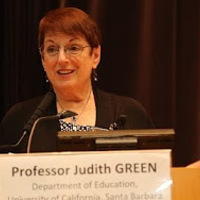
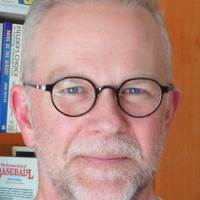


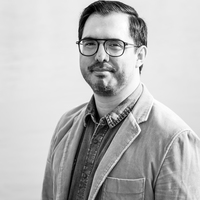



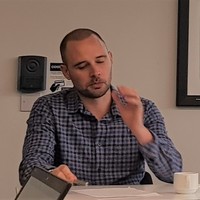
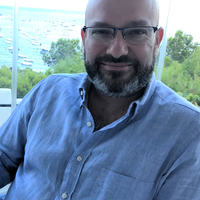
Uploads
Papers by Maria Olson
Not only do political actors at macro level try to provide for citizen formation with help of Social science education and History education . A multitude of other actors at regional and local level – be it non- governmental, religious or economic actors, or parents – bring their own agendas and normative stances into the school subjects of Social science education and History Education. The term “hidden curricula” and the idea of (hidden) normativity are further associated with national and supra national policy agendas and grand cultural narratives. However, local and regional specifics that are intimately connected to the normatively laden conceptions of citizenship edu- cation and learning inside and outside of school, we argue, can and should be provided increased attention in research. In this special issue, two school subjects are highlighted: Social science education and History education.
The very idea of normativity of Social science education and History education is being evaluated quite differently in different national educational settings and subject didactic traditions. It encom- passes the whole range from being considered as allowable and wishful in order to reach some central moral, political or other normative goals of society to absolute ban and resolute absence of any substantive or normative qualification of social science and history
teachers as professionals (for the German discussion, cf. Besand et al., 2011).
This special issue of the JSSE, entitled (Hidden) Normativity in Social Science Education and History Education brings together empirical, methodological and theoretical contributions that in one way or the other elaborate on normativity in Social science edu- cation and History education. Central questions addressed in the call are: How is normativity visible and formed within Social science education and History education? How can these processes be approached empirically? Is there something wrong with normativity, and if so why? Which role does normativity play for social science teachers and history teachers in their profession? The authors in this issue have created vital responses to these questions, suggesting new comparative methodologies and opening up innovative areas of empirical research in more or less theoretical framings. The following specific approaches to research on normativity in Social science education and History education are embraced by the authors:
- Normativity is stressed as a phenomenon
indisputably related to Social science education and
History education. But the modes of normativity, its
explicitness, direction, strength and actors alter.
Education policy and practice are deeply entwined,
and processes of normative change come to the fore --
in critical and constructive investigations of central concepts in these school subjects, at different school levels and over time. Out of different theoretical and methodological approaches, the authors demon- strate convincingly the necessity to consider differ- rent sources of empirical material in order not only to map and describe different facets of normativity in Social science education and History education. But also to make a case for the complexity involved in the intermingling of hidden and unhidden normativity in the everyday practice of teaching and learning of these school subjects.
- Focusing different forms of knowledge and conceptual uses in policy and practice in Social science education and History education (at mainly upper secondary level) allow for approaching normativity not only as a matter of detecting where it is situated in these school subjects and why this is so. It also contributes to the development of relevant subject specific methodological frameworks that may be considered key for the development of this field of research.
- Sociological and other educational theories and methods deriving from social sciences are being use innovatively by the authors. In doing so, we argue, they open up for a widening of the scope as regards the meaning and importance of theoretically underpinned comparative approaches to the research field of subject didactics.
- By stressing critical concepts and conceptual uses in Social science education and History edu- cation, the intimate connection between these subjects and their assigned task to see to citizenship learning and social formation emerges.
Journal Articles by Maria Olson
Not only do political actors at macro level try to provide for citizen formation with help of Social science education and History education . A multitude of other actors at regional and local level – be it non- governmental, religious or economic actors, or parents – bring their own agendas and normative stances into the school subjects of Social science education and History Education. The term “hidden curricula” and the idea of (hidden) normativity are further associated with national and supra national policy agendas and grand cultural narratives. However, local and regional specifics that are intimately connected to the normatively laden conceptions of citizenship edu- cation and learning inside and outside of school, we argue, can and should be provided increased attention in research. In this special issue, two school subjects are highlighted: Social science education and History education.
The very idea of normativity of Social science education and History education is being evaluated quite differently in different national educational settings and subject didactic traditions. It encom- passes the whole range from being considered as allowable and wishful in order to reach some central moral, political or other normative goals of society to absolute ban and resolute absence of any substantive or normative qualification of social science and history
teachers as professionals (for the German discussion, cf. Besand et al., 2011).
This special issue of the JSSE, entitled (Hidden) Normativity in Social Science Education and History Education brings together empirical, methodological and theoretical contributions that in one way or the other elaborate on normativity in Social science edu- cation and History education. Central questions addressed in the call are: How is normativity visible and formed within Social science education and History education? How can these processes be approached empirically? Is there something wrong with normativity, and if so why? Which role does normativity play for social science teachers and history teachers in their profession? The authors in this issue have created vital responses to these questions, suggesting new comparative methodologies and opening up innovative areas of empirical research in more or less theoretical framings. The following specific approaches to research on normativity in Social science education and History education are embraced by the authors:
- Normativity is stressed as a phenomenon
indisputably related to Social science education and
History education. But the modes of normativity, its
explicitness, direction, strength and actors alter.
Education policy and practice are deeply entwined,
and processes of normative change come to the fore --
in critical and constructive investigations of central concepts in these school subjects, at different school levels and over time. Out of different theoretical and methodological approaches, the authors demon- strate convincingly the necessity to consider differ- rent sources of empirical material in order not only to map and describe different facets of normativity in Social science education and History education. But also to make a case for the complexity involved in the intermingling of hidden and unhidden normativity in the everyday practice of teaching and learning of these school subjects.
- Focusing different forms of knowledge and conceptual uses in policy and practice in Social science education and History education (at mainly upper secondary level) allow for approaching normativity not only as a matter of detecting where it is situated in these school subjects and why this is so. It also contributes to the development of relevant subject specific methodological frameworks that may be considered key for the development of this field of research.
- Sociological and other educational theories and methods deriving from social sciences are being use innovatively by the authors. In doing so, we argue, they open up for a widening of the scope as regards the meaning and importance of theoretically underpinned comparative approaches to the research field of subject didactics.
- By stressing critical concepts and conceptual uses in Social science education and History edu- cation, the intimate connection between these subjects and their assigned task to see to citizenship learning and social formation emerges.